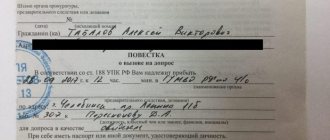1. Investigative actions provided for in Articles 178, Part Three, 179, 182 and 183 of this Code are carried out on the basis of a resolution of the investigator.
2. In the cases provided for in paragraphs 4 - 9, 11 and 12 of part two of Article 29 of this Code, investigative actions are carried out on the basis of a court decision.
3. Carrying out investigative actions at night is not allowed, except in urgent cases.
4. When carrying out investigative actions, the use of violence, threats and other illegal measures, as well as creating a danger to the life and health of the persons participating in them, is unacceptable.
5. The investigator, inviting participants in criminal proceedings specified in Chapters 6 - 8 of this Code to participate in investigative actions, verifies their identity, explains to them their rights, responsibilities, as well as the procedure for carrying out the corresponding investigative action. If a victim, witness, specialist, expert or translator participates in the investigative action, he is also warned of the responsibility provided for in Articles 307 and 308 of the Criminal Code of the Russian Federation.
6. When carrying out investigative actions, technical means and methods of detecting, recording and seizing traces of a crime and material evidence may be used. Before the start of an investigative action, the investigator warns the persons participating in the investigative action about the use of technical means.
7. The investigator has the right to involve an official of the body carrying out operational investigative activities in participation in the investigative action, about which a corresponding note is made in the protocol.
8. During the investigative action, a protocol is kept in accordance with Article 166 of this Code.
Commentary on Article 164 of the Code of Criminal Procedure of the Russian Federation
1. In the judicial stages, slightly different general conditions for conducting investigative actions apply (see Com. to Art. Art. 240 - 260).
2. The commented article contains an open list of general rules for conducting investigative actions - criminal procedural norms regulating each investigative action. Additionally it should include:
1) the general basis for carrying out investigative actions is the presence of information that it is necessary to obtain evidence of a certain type using these particular actions;
2) general conditions for conducting investigative actions: a) the existence of an instituted criminal case (with the exception of inspection of the scene of the incident, during which coercion is minimal, inspection of the corpse, examination in urgent cases); b) a proper subject who is not subject to recusal and has accepted the case for its proceedings; c) lack of official immunity (see com. to Art. Art. 3, 450);
3) the prohibition of leading questions is provided for certain investigative actions in Part 2 of Art. 189, part 7 art. 193, part 2 art. 194, part 1 art. 275. However, this is a general rule. A question that contains the answer (whether the suit was blue) is considered leading. From the point of view of the adversarial principle, leading questions are allowed only in the cross-examination of an opposing witness;
4) prohibition of actions that degrade honor and dignity (Article 9); needlessly damaging property (Part 6 of Article 182); disclosing information from private life (part 3 of article 161, part 7 of article 182);
5) place of investigative actions (see note to Articles 152, 157);
6) the circle of obligatory participants in investigative actions (specialist, witnesses, translator, defense attorney, parties and their representatives; see Com. to Art. 42 - 54, 168 - 170).
Violations of procedural norms on the grounds, conditions and rules for conducting investigative actions entail the application of sanctions. For participants in the process, these may be coercive measures, a fine or even criminal liability. For the subjects of the process, the main sanction is the loss of the evidentiary value of the results of the investigative action - the sanction of insignificance (Part 2 of Article 50 of the Constitution of the Russian Federation, Part 3 of Article 7, Article 75 of the Code of Criminal Procedure).
3. By court decision the following is also carried out: 1) exhumation of a corpse against the will of the relatives of the deceased (Part 3 of Article 178); investigative actions against a lawyer (Part 3 of Article 8 of the Federal Law of May 31, 2002 N 63-FZ “On advocacy and the legal profession in the Russian Federation”). Despite the fact that in Art. 450 of the Code of Criminal Procedure does not provide a similar guarantee for lawyers; the Law “On Advocacy and the Bar in the Russian Federation” in this case takes precedence, since it is specifically intended to regulate lawyer relations (Definition of the Constitutional Court of the Russian Federation of November 8, 2005 N 439-O). On obtaining a court decision for a search that is not carried out in a home, see com. to Art. Art. 165, 182.
In judicial practice, there is a need to limit the constitutional right to the inviolability of the home when carrying out other actions not specified in Article 29 of the Code of Criminal Procedure, for example, checking testimony on the spot. Within the meaning of the Determination of the Constitutional Court of the Russian Federation dated July 6, 2010 N 911-О-О, in such cases a court decision can also be obtained on the basis of Article 25 of the Constitution of the Russian Federation.
4. The law does not provide for the form of notification by the investigator of professional participants in investigative actions. However, in order to bring a lawyer to disciplinary liability for violating the laws on advocacy and the legal profession and (or) the Code of Professional Ethics for Lawyers, the investigator must provide convincing evidence of the fact of notification <1>.
——————————— <1> See: Review of the disciplinary practice of the Moscow Bar Association dated November 22, 2006 // https:// www.businesspravo.ru/ Docum/ DocumShow_DocumID_120179.html.
5. Involvement in participation in investigative actions (Part 7 of Article 164 of the Code of Criminal Procedure) should be distinguished from obtaining assistance from the body of inquiry in carrying out investigative actions (Clause 4 of Part 2 of Article 38). Assistance can be expressed in the activities of a wide range of inquiry workers to ensure the preparation of organizational conditions (such as a cordon, escort), the use of coercion, and the safety of participants in the investigative action. For example, assistance is provided in the form of combing the area for subsequent inspection of discovered traces. It is not necessary to indicate each assisting employee in the protocol of the investigative action, but each participating employee must (clause 3, part 3, article 166 of the Code of Criminal Procedure). Operational officers are usually involved in participating in investigative actions, for example, to perform search actions during a search, or to lead one of the groups during an investigative experiment.
The powers of the investigator according to the Code of Criminal Procedure of the Russian Federation
The criminal procedural legislation fully discloses the powers of the investigator in criminal proceedings in Article 38. According to the article, the investigator belongs to the category of officials who carry out the investigation process at the preliminary stage in cases of a criminal nature within the framework of the powers established by law.
Within the framework of the powers granted to him, the investigator has the right to carry out the following actions:
- Make decisions to initiate criminal cases in the manner prescribed by law.
- Accept criminal cases for proceedings or transfer cases to the head of the investigation department for transfer according to jurisdiction.
- Carry out independent management of the direction of the investigation, making decisions on the implementation of investigative and procedural actions, excluding cases when the implementation of these actions requires a court sanction or the consent of the head of the investigative body.
- Instruct in writing the employees of the investigative bodies to carry out operational investigative activities, carry out individual investigative actions, execute orders to bring, detain, arrest, carry out other procedural actions or jointly carry out these actions.
- Submit a complaint, agreed upon with the head of the investigative body, against the decision of a representative of the prosecutor's office to cancel a resolution allowing the initiation of a criminal case, to conduct a further investigation by returning the case to the investigator, to change the categories or classifications of charges brought, to draw up a new indictment or to eliminate deficiencies in already drawn up documents .
If the investigator does not agree with the decision of the prosecutor, he has the right to file a complaint through his immediate superior - the head of the investigative body, who conveys the thesis of the complaint to the prosecutor.
Protection of the rights, freedoms and legitimate interests of the parties
According to the classification derived from the criminal procedural legislation, the functions and powers of the investigator in criminal proceedings, which relate to protecting the interests of all persons participating in the criminal process, are reduced to ensuring that all persons involved in the criminal process are maximally protected and free in the role of a participant in the process.
The human rights powers of the investigator are as follows:
- Explaining to suspects, accused, victims, civil plaintiffs, civil defendants and other participants in criminal proceedings their rights, duties and responsibilities.
- Ensuring that the parties can exercise their rights, duties and responsibilities.
- Taking protective measures in relation to all participants in the criminal case, including the victim, witnesses and other persons, as well as their loved ones and relatives, if there is a threat to their safety. It can be expressed in the threat of murder, violence, destruction or damage to property, etc.
All powers of the investigator in criminal proceedings and the procedure for their implementation are enshrined in Articles 42, 44, 46-48, 53-54 of the Procedural Code.
Ensuring suspects and accused persons have the right to defense
The concept and powers of the investigator in criminal proceedings in the field of protecting the accused party are reflected in paragraph 4 of part 2 of article 38 of the Code of Criminal Procedure of the Russian Federation. On the basis of procedural legislation, the investigator may give instructions to employees of the inquiry agency to carry out operational investigative actions and other investigative measures, including the execution of orders for arrest, arrest or detention and other procedural actions. In addition, the investigator has the right, when independently exercising these powers, to receive assistance from the inquiry in the implementation of all activities.
An order as the authority of an investigator in criminal proceedings under the Code of Criminal Procedure is a written request from the investigator to the investigation department to perform certain procedural actions or activities of an operational investigative nature. The order includes information about the guarantor, the addressee, the content of the essence of the case, the regulatory framework and specific necessary actions. The assignment may include an explanation of the process for its implementation.
To give instructions to an inquiry, certain requirements must be met, in particular:
- Instructions can only be given if there are objective reasons for the investigator’s own impossibility of carrying out the necessary investigative actions.
- The inquiry cannot be entrusted with making independent decisions that require assessing the entire body of evidence available in the case and taking the necessary actions. Such actions include filing charges, interrogation, choosing a preventive measure, recognizing a person as a victim or other participant in a criminal process, ordering an examination, etc.
- The inquiry cannot be entrusted with carrying out the most important actions for a criminal case and those requiring special skills and qualifications (for example, inspecting the scene of an incident, presenting a person for identification, conducting investigative experiments).
The completed order is sent to the head of the investigation department, who appoints the necessary employee to carry it out. According to the procedural articles, the powers of the investigator in criminal proceedings allow him to send instructions to a specific employee of the inquiry department, if he is part of the investigative and operational group. A copy of the order, along with the protocols of the actions taken, is attached to the file. If this procedural action is not carried out, the results of the investigative measures taken may be considered illegal.
According to Part 7 of Article 164 of the Code of Criminal Procedure, the powers of the investigator in criminal proceedings include the possibility of involving an official of the body that carries out operational investigative activities in participation in investigative actions, which is reflected in the protocol.
The limits of the investigator's powers are quite wide. He has the right to independently set the direction of the investigation and decide on any actions of a procedural or investigative nature. The only exceptions are cases when the performance of certain actions requires judicial or prosecutorial sanction.
The list of restrictions on the exercise of investigator powers in criminal proceedings is exhaustive. In procedural terms, the investigator is independent in making decisions on redirecting the case, in determining the tactics of conducting investigative actions and the sequence of their implementation.
In general, the procedural autonomy and independence of the investigator leading the case is that, except for the prosecutor and the head of the investigative body, no one has the right to demand materials related to the criminal case, for which a decision was made on the refusal to open a case of a criminal offense, the materials of the case themselves for implementation checking the progress of the investigation. In addition, third parties do not have the right to study ongoing criminal cases and give instructions on them, determine the qualifications of crimes, or otherwise interfere with the procedural actions of the investigator.
The powers of the investigator in criminal proceedings, under Articles 38 and 39 of the code, are ensured through legislative restrictions on the prosecutor's powers and the powers of the head of the investigation department regarding the implementation of procedural management of the investigation process at the preliminary stage.
Definition of authority
Article 38 of the Code of Criminal Procedure of the Russian Federation does not limit the powers of the investigator in criminal proceedings. They appear to varying degrees in other articles.
At the beginning of the Code (clause 41 of Article 5) it is stated that the investigator conducts all stages of the preliminary investigation of the case, and also exercises other powers that are provided for by the legislation of the criminal procedure sphere.
All powers represent a system of procedural duties and rights of the investigator, which are necessary and sufficient to carry out procedural actions:
- making the right decision on crime reports;
- establishing the absence or presence of circumstances that are subject to proof in a criminal case;
- ensuring appropriate conditions for the legal consideration and judicial resolution of the case on the merits;
- exemption from criminal liability of a person who has committed a minor crime or a crime of medium gravity;
- rehabilitation of a person found innocent.
Some concepts of the powers of the investigator in criminal proceedings of a procedural nature are defined by other legislative acts, including federal laws. Organizational powers are reflected in the regulatory documents of the Prosecutor General's Office, the Ministry of Internal Affairs and the FSB of the Russian Federation, which reveal the features of the process of organizing the preliminary investigation stage. Some points are disclosed in the acts of these departments together with the heads of other committees, services and ministries.
Carrying out criminal prosecution
The functions and powers of the investigator in criminal proceedings in relation to prosecution of a criminal nature are enshrined in Article 21 of the Code of Criminal Procedure of the Russian Federation. According to legislative norms, the duty of the investigator is to carry out criminal prosecution in cases of private-public and private accusations on behalf of the state.
The procedural powers of the investigator in criminal proceedings when carrying out criminal prosecution are as follows:
- Initiation of a criminal case against a specific person.
- Detention of a specific person recognized as a suspect.
- Involvement of a person as an accused.
- Search for hiding suspects or accused.
- Application of a preventive measure against the accused.
- Drawing up an indictment and sending the case to the prosecutor for further transfer, according to jurisdiction.
Review and resolution of reports by investigators
The peculiarities of the powers of the investigator in criminal proceedings are enshrined in Articles 148, 38, 146 and 147 of the Code of Criminal Procedure of the Russian Federation. They are implemented within the framework of investigative jurisdiction in criminal cases, in accordance with Article 151 of the Code of Criminal Procedure of the Russian Federation.
During the period of identifying the subject to whom the case should be transferred under jurisdiction, interested parties can destroy traces of the crime, falsify evidence or commit other actions that direct the investigation along the wrong trail.
To exclude this possibility, the investigator who received the message is obliged to consider it, initiate a case and carry out priority investigative measures to clarify the circumstances of the case, and then transfer the case to jurisdiction, on the basis of Part 5 of Article 152.
Classification of powers
Analysis of the provisions of the articles reflecting the content of criminal procedural norms allows us to classify the powers of the investigator in criminal proceedings. All powers are divided into the following types:
- consideration and resolution of reports of committed, ongoing or planned crimes;
- establishing the circumstances that are included in the subject of the process of proof in criminal cases;
- carrying out criminal prosecution against those suspected or accused of committing criminal offenses;
- protection within the framework of the law of the rights, freedoms and interests of persons who are involved in participation in criminal proceedings;
- giving instructions to investigative bodies.
It is also possible to classify the powers of the investigator in criminal proceedings, dividing them into two types:
- Protective.
- Powerful.






